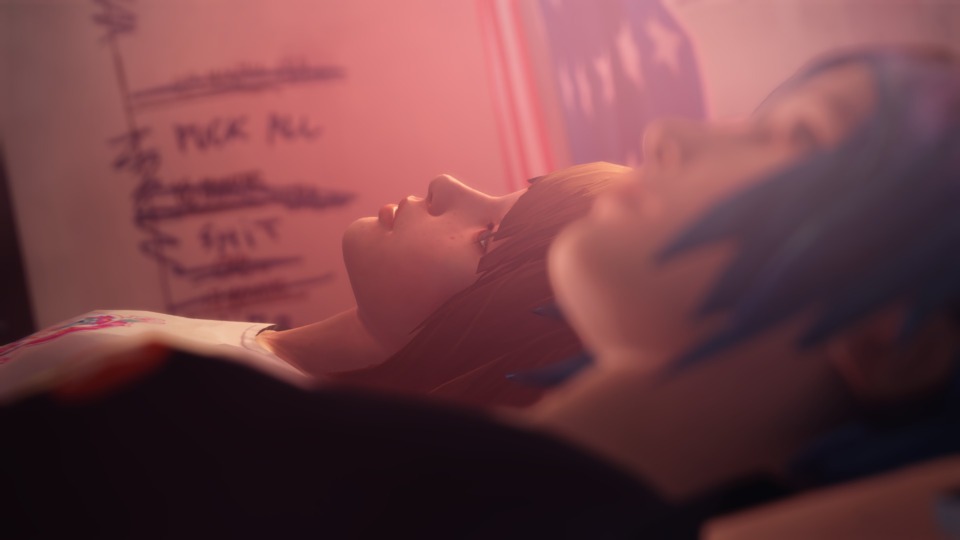The Choices We Make: Narrative Consequences in Life is Strange (and Other Games)
By clagnaught 10 Comments
[Just a FYI, I don't spell out what actually happens in these games, but I specifically talk about the story changes and the impact some decisions have on the following games: Life is Strange, Mass Effect 3, Heavy Rain, Beyond: Two Souls, and Until Dawn. I do not say how these games end, what are the main choices you make, or even what these games are really about. So not really a spoiler warning, since there are no spoilers here, but if you're super sensitive about these games, there's a heads up for you.]
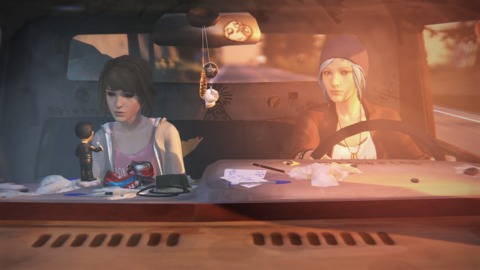
The past two weeks I have been playing through each episode of DONTNOD Entertainment's episodic narrative focused game Life Is Strange, a game that could very well be my Game of the Year. It is at times touching, emotional, quirky, heartbreaking, and unnerving. The core of the game is centered around Max Caulfield's manipulation of time to solve puzzles and make, undo, and remake decisions that will have a ripple effect throughout Arcadia Bay. The interesting thing about this mechanic from a story perspective is you generally know the consequences of your actions before it becomes final. As an example, with the very first decision like this you make, you are given the option of telling the school principal something or not. Both outcomes are not exactly ideal. It's not like Option A is the smart, moral decision, while Option B is the bad decision for people who want to watch the world burn. You can see the reactions to the characters and make a judgement call based on what you feel is best for Max as a character.
Throughout the game, these little decisions and the major choices Max has to make are reflected throughout the game: from subtle changes in the scenery, to offhand references characters make while talking about something more important, to what feels like the pinnacle of all video game choices--choose if somebody lives or dies. Now I am not going to talk about what are these choices--you should play this great, weird, beautiful game for yourself if you haven't--but I want to talk about these types of games in general, the impact your player choices has over the narrative, and why a game like Life is Strange succeeds while other games are less successful.
(For the record, this is just stuff I've been thinking about lately. If you don't agree with my opinions on any of these games or my thoughts on game narrative and design, that's a-Ok!)
So without saying what those decisions are or talking about what the hell happens in the game...what's with the choices you have in Life is Strange and how much does it affect the story? Does it impact how the game plays out? Well, I will say the game doesn't have 29 different endings. There isn't some algorithm running in the background calculating how Decision A + (Decision C + J) - Decision D (if the player picks Option B in Chapter 3) + Is Supporting Character #2 Still Alive = Ending #5. The way Life is Strange actually ends is pretty cut and dry, even for a game that starts each chapter with a reminder saying "This is a narrative driven game and your actions will affect the past, present, and future".This isn't to say the decisions don't mean anything. All of your decisions accumulate from episode to episode and impact the game as a whole. All it really means is there are only a handful of ways Max and Chloe Price's story could end.
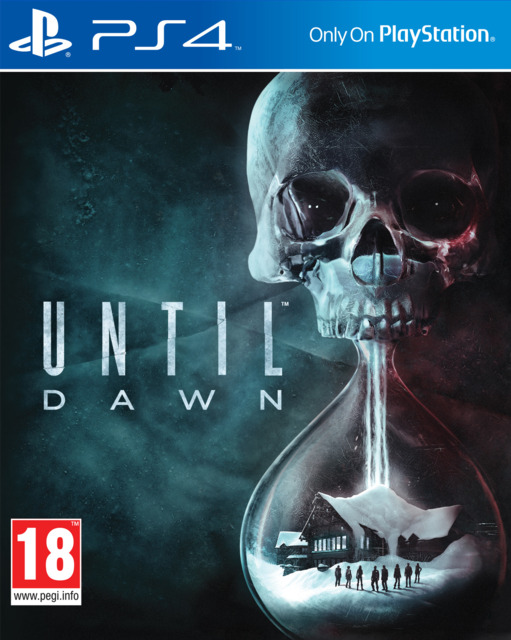
In my mind, Life is Strange is one of the most (if not the most) successful narrative driven games of this type I have played. I say this within the context of my own personal enjoyment (what I got out of it, which may be different than what you will take away from it), the sense of player agency, and as a piece of interactive fiction. Over the past few years, we have seen plenty of examples of this type of game done well and poorly. If I would have to give a random example of both the good and the not-so-good, the good representation of this would be Telltale Games's The Walking Dead, while a poor representation of this would be BioWare's Mass Effect 3. Of course, you are more than welcome to disagree with how successful you think games like Life is Strange are or defend a game I am less favorable of. I'm not here to defend or tear down any one game. Even though I am going to compare and contrast some of these games, the main reason why I'm doing this is because I have played number of these types of games before, and I have various opinions on all of them, yet they aren't that radically different from each other.
Life is Strange, The Walking Dead, Mass Effect 3, Beyond: Two Souls, Until Dawn, these are all games that have character choices that impact the story. There are a few twists here and there to the formula: in Mass Effect you can Left Trigger or Right Trigger something in a cut scene; in Until Dawn sometimes it's better to not interact with something and continue the scene as is; in Life is Strange you can time travel and undo a decision and try something else. But you are still talking to people and choosing between more or less two critical decisions. Are you going to try and help So-and-So? Are you going to kill So-and-So? Are you just going to be an asshole? And like all of these games, you only have so much input into how the games actually end and what happens in the story.
Granted there are exceptions and games that do this better than others. There are visual novels that have completely different "paths" depending on which character you befriend or romanced. While it isn't beloved by everyone, Quantic Dream's Heavy Rain doesn't exactly have an ending to the overall story, but rather a number of different character specific endings that mix and match for each of the four main characters. But these feel like the exception. More or less the rule is we have games that offer and often publicize player choice, but only a set number of ways these decisions and actions impact the game's overall story and ending. Recently I even had some complaints about Until Dawn. While I wholeheartedly recommend that game, I was disappointed in how Until Dawn follows a critical path and some things are just bound to happen, no matter what you do. (If you look hard enough you can find me in a comments section of a certain Giant Bomb East Playdate making this case)

With that in mind, the question I've been asking is this: With games that are focused on player choice and consequences, what's the difference between a game where the lack of choices or number of consequences doesn't matter and the game is overall a success, while a similar game with similar types of endings and consequences is considered unsuccessful? Why do some games get a pass, while others do not? Generally speaking I think you can say it all depends on the quality of the game. Some games are simply better than others, or one grabs you more than another. If you dislike Until Dawn as a game, you aren't exactly going to praise its narrative and interactive qualities, right? Same thing if you can't stand Max and Chloe as characters in Life is Strange. However, since I almost always have a strong opinion on games like this--whether it is successful or not--I started to think that there might be more to it than that--at least for me if nothing else. My theory is a large part of this has to deal with how a game presents itself and how the player reacts to it.
These types of narrative driven games are unique for a lot of reasons. But one that sticks out to me is the fact most of them start off by saying "This story is interactive and driven by player choice. Every action you make will be reflected in the story." That's more or less the game pitching itself to you. How many first person shooters have you played where it opened up saying "This is a game where you run around with a machine gun. You're going to kill a lot of people, and it's going to be an entertaining experience"? Understandable, games like Until Dawn and Life is Strange are new-ish and it's just a heads up for the player. To me, I think that this type of logic doesn't need to be articulated and it can actually hurt a game.
Since games are inherently an interactive medium, if you sell the story based on that interaction, people are going to anticipate it. Before Heavy Rain came out, there was talk that you could have the four main characters killed off and the game would end. (Well, that doesn't happen. All of those characters could die, but the game isn't designed to work like that.) Before Mass Effect 3 came out, there was talk about how there would be wildly different endings and it wouldn't end with you picking an ending from a couple of different options. (The game ends with you picking between a couple of different options) The difference between the promotion and execution isn't the developers being deceitful to try and set up a twist to surprise the players. They just described their game how it isn't. That said, I think it only really matters if it affected your enjoyment of the game. This by itself is not necessarily the end of the world.
To give an example, I played through Heavy Rain a few too many times, experimenting with completely random things to see how the game ticked. There are times where the game can't let you fail, because that specific failure will break the critical path. (Sort of like how future events X, Y, and Z depend on this happening. Therefore that thing you assume you can do in the game is actually impossible) The game also doesn't have a scenario where all four of the main characters are killed and the game comes to an early end. However, almost every scene has multiple ways it could end. The climax of Heavy Rain can be radically different based on the actions you have taken earlier in the game. There isn't one single way to find out who the Origami Killer is.
A good example of me trying to figure out how Heavy Rain ticked is one throwaway scene where you cook eggs. You can cook them perfectly. You can undercook them. You can overcook them. Or you can stand around for a minute, have the other person walk back in the room and say, "Hey, I thought you were going to cook some eggs?!" Heavy Rain is by no means a perfect game and there are limitations to what the game promises. At the end of the day, in order to see most of those limitations you would need to try and break the game. Even if you did, I think there is plenty of variety between alternate dialogue options, scenes, and character interactions you would not see otherwise to make the game feel like your own.
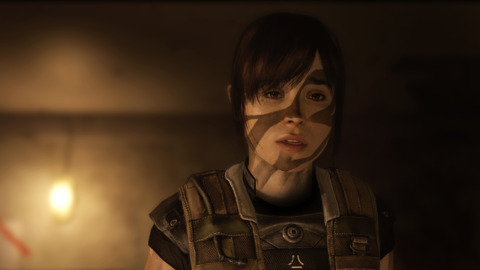
In contrast, Quantic Dream's followup Beyond: Two Souls never felt like it had this balance. There are some memorable moments in the game--probably one of the most cited sequences is the party scene towards the beginning of the game. Large portions of the game had elements of interactivity, but lacked depth and felt limited. One chase scene where Jodie Holmes has to run from the police could end with her escaping freely or getting arrested. By the way, if she is arrested, she escapes somehow in the next cut scene. You can mind control people and manipulate objects. But only in the one way the programmers and designers told it to. In fact, I'm having a hard time thinking about the negative things that could happen to Jodie. There simply aren't that many of these events in the grand scheme of things, which is kind of odd in a game that is largely about the trials and tribulations she goes through. At that point, I just have to ask "What's the point of all of this anyway? Why didn't they just make a different game if they weren't going to go all of the way from an interaction standpoint?" When I look over the game, I think more about how the game is lacking in interactivity than anything else. Even with the game's final decision, it didn't feel deserved. Yes you have the freedom and player choice to pick your ending literally from a list that appear out of nowhere, but the importance of your choice needs to be felt through the story, not from a button prompt and a two minute cut scene at the end. Then again, this might be a different conversation if I actually liked the overall story in Beyond: Two Souls.
So what about something like Mass Effect? In that game, you can romance a handful of different people. The second game is basically all about you determining who lives and dies. The promise and the potential of the Mass Effect trilogy is something that hasn't really been attempted before and that's probably why it didn't live up to a lot of people's expectations. There have been plenty of crazy ideas for video games before and the idea behind the Mass Effect trilogy is kinda nuts. In fact, it makes more sense that Mass Effect 3 didn't live up to people's expectations than it actually succeeding. The more I think about it, the more I think that this problem really happened because of the promise of what the trilogy could be. I know I'm not the only one who replayed a previous Mass Effect game to import a save into ME3. If you search on YouTube, you can find videos of people creating a character to import in order to receive the worst ending possible. People like me didn't want to have one story. They wanted to see all of the stories. In the end, the people who went crazy for this kind of thing took the ending a lot harder than people who didn't.
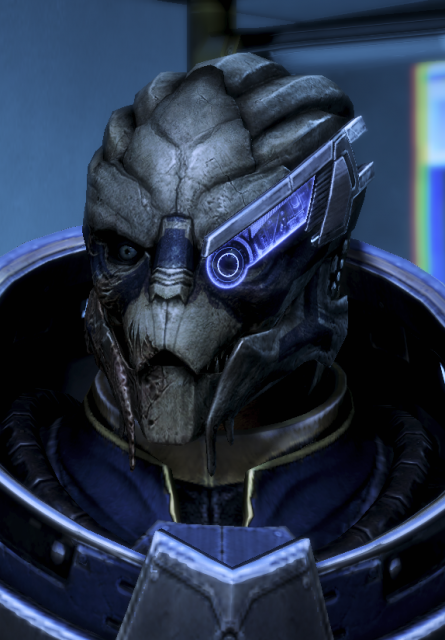
As insane as it sounds, what I realized was the way I was playing Mass Effect was similar to how I played Heavy Rain. I replayed Heavy Rain over and over again to see what that game could do. When people talk about the gameplay in Heavy Rain, it is often about the Quick Time Events and the unconventional controls like how you open doors or even take a step forward. To me what sticks out most about "playing" Heavy Rain isn't those types of inputs, but rather toying with the story. It was me thinking, "What would happen if I did this to one character" or "How would the game change if this character never found out about something". I think with this mentality, you are also expecting more drastic changes with the story and the endings. If you are going to run an experiment, you want to see different results.
Even if other people don't feel this way, I believe this is why I and other people feel disappointed over a lack of choice in some games. Even for people who don't replay a game multiple times and want to see the flip side of their decisions from a previous play through, there is a sense that your primary action deserves an equal reaction. For me Beyond: Two Souls didn't do this. Until Dawn could have done it a little bit more with a few more consequences, but it is still a great game. Heavy Rain is very successful at letting you play as the game's director and do just that. But at the end of the day, it feels like most games simply aren't designed for this type of interaction.
Even if a game claims you can do this, sometimes there are either not enough paths, not enough choices, and not enough endings to live up to those types of expectations. Until Dawn opens with a cinematic talking about what the Butterfly Effect is. Mass Effect is literally called "mass effect" (get it). It's easy just to put the blame on the developers and say "They shouldn't do that", but maybe players should just expect something different from a lot of these types of games?
So, with all of that said and all of those other games out of the way, why is Life is Strange my favorite game of this type? One of the reasons is because I didn't care about any of that stuff.
Between Episodes 4 and 5, I briefly thought about hastily playing through Life is Strange again to have two save files ready for the Series Finale, so I could see "the other side of the story". I'm glad I didn't. I remember reading David Cage say that he wanted people to have one play through of Heavy Rain, in the sense that what you get during that play through is your Heavy Rain story. Playing through Life is Strange, I definitely have that feeling. In large part, this is because of the main character Max.
Between the voice acting, the journal entries, her internal monologue (when the option appears, always sit down for a second), looking at all of the objects inside her dorm room, reading text messages, and talking to the other characters, I don't think I have ever been in a character's shoes more than Max Caulfield's. I always felt like I was looking through her eyes and I never felt like Max was a blank slate for me or wondered off and thought about this side character more than the protagonist. Life is Strange goes out of its way to put you in Max's world. That's not to say it is exactly the most authentic of teenage minds. However, since everything is so realized with the surround characters and a richly populated world, it felt believable, even when it clearly isn't.
I don't care what anybody says, but "Splish Splash" is the best and realist line in that game. Hella Splish Splash!
The connection I had towards Max transferred over to the story as well. With these types of games, I usually play through the game making the decisions I would if I was in that situation. And while I did play Life is Strange in this way in the beginning, I started to play through the game as if I was Max. She isn't a traditional video game character in the sense that she is a blank slate or has an ambiguous past. I know who she is and what her thought process is. That lead me to have more and more empathy for her and her situation, which then lead me to agonize over everything other decision over the course of the series. I wanted the best for Max and Chloe, but the game doesn't give you that many great options to "Do the right thing". Max's story is about somebody who is a shy and reserved who has to step up and take action in order to deal with the extraordinary things around her, and when I walked away from my computer, pacing around wondering what the hell I was going to do, I felt that as a person.
When I finished Life is Strange, I didn't have endless possibilities laid out in front of me. Before the end came, I knew the ways this story was going to end. I still looked back over everything Max had to go through. From the carefree and funny to the dangerous and deathly serious. When I was approaching the end, there were situations that could have had a "better" outcome, but I was at peace. I played through the game as I saw it. I cared about so many of those characters that I wanted to do what I thought was right. Life is Strange isn't a game about going Paragon or Renegade and it is all the better for it. It doesn't matter that each choice you make adds up to a unique, one of a kind final act. If you connect with a story and its characters enough, if you have ownership over your actions, if you feel like you are creating your own path, you don't need any of that.
I enjoyed Life is Strange so much, I will absolutely play through it again someday. The thing is I don't know when. Maybe a year from now, so I can go back to Arcadia Bay and to interact with those characters again. If I ever had the opportunity, I would love to watch somebody else I know play through the game. Whatever the reason or whenever it happens, I can tell you this much: I'm not going to play through the game just to pick every alternate conversation option or to get another ending. Even if there were 29 different endings all processed by some line of code, I don't need to play through the game just to see it. I already had my Life is Strange experience and I loved it to death. <3
